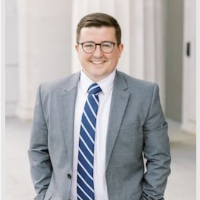Mobile County, AL Felony Lawyers
Not enough matches for Mobile Felony lawyer.
Below are all Mobile Criminal lawyers.
Christine C. Hernandez
✓ VERIFIEDCriminal, Divorce & Family Law, Accident & Injury
Christine graduated from Troy State University in 1990 with a Bachelor’s degree in Education and Sports Medicine. She moved to Mobile, as a graduate... (more)
James Murray Byrd
✓ VERIFIEDCriminal, DUI-DWI, Felony
My name is James M. Byrd and I'm a Mobile, Alabama criminal defense attorney. I was born in Mobile and graduated from Jefferson Davis High School in M... (more)
Cody Shea Poe
✓ VERIFIEDCriminal, Personal Injury, Car Accident, Credit & Debt, Insurance
Cody Poe helps people reclaim their voices and protect their rights, providing consumer debt defense, criminal defense, and insurance litigation.
FREE CONSULTATION
CONTACTRachel Macon
Divorce & Family Law, Bankruptcy & Debt, Criminal, Estate
Status: In Good Standing Licensed: 13 Years
FREE CONSULTATION
CONTACTFREE CONSULTATION
CONTACTMichael A. Wing
Admiralty & Maritime, Divorce, DUI-DWI, Criminal
Status: In Good Standing Licensed: 29 Years
Ralph Gans Holberg
Conveyancing, Criminal, Elder Law, Animal Bite
Status: In Good Standing Licensed: 60 Years
Michael Ralph Holberg
Conveyancing, Criminal, Elder Law, Animal Bite
Status: In Good Standing Licensed: 31 Years
Thomas Earl Harrison
Family Law, Custody & Visitation, Criminal, Civil Rights
Status: In Good Standing Licensed: 47 Years




